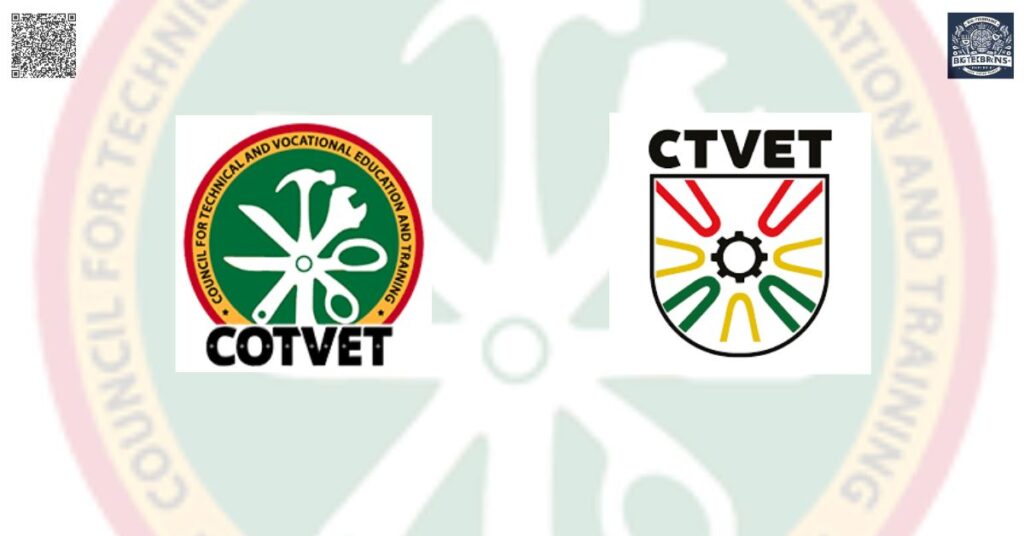Excerpt
The Council for Technical and Vocational Education and Training (COTVET) was established by the Council for Technical and Vocational Education and Training Act, 2006 (Act 718) of the Parliament of the Republic of Ghana in August 2006 to coordinate, harmonize, and supervise the activities of private and public providers of technical and vocational education and training, including the informal sector.
In 2020, the Education Regulatory Bodies Act 2020 (Act 1023) transformed COTVET into the Commission for Technical and Vocational Education and Training (CTVET), expanding its mandate to regulate, promote, and administer TVET for transformation and innovation towards sustainable development.
Constitutional Mandates
CTVET’s functions, as outlined in Act 1023, include:
- Formulating national policies for skills development across various education sectors.
- Coordinating and supervising TVET institutions to meet formal and informal sector requirements.
- Developing and implementing a national assessment and certification system for TVET.
- Ensuring quality, equitable, and inclusive access to TVET.
- Facilitating research and development in the TVET system.
- Promoting collaboration between training institutions and industry for curriculum development and workplace experience.
- Accrediting programs, institutions, and facilitators to ensure quality delivery.
- Collaborating with relevant agencies to implement competency-based training programs.
Leadership and Organizational Structure
CTVET operates under a leadership structure comprising a governing board and an executive director. The board includes stakeholders from various sectors, ensuring diverse representation. The executive director oversees daily operations, supported by various departments and units responsible for specific functions such as accreditation, curriculum development, and industry collaboration.
Mode of Appointment and Recruitment
Appointments to the governing board are typically made by the government, ensuring representation from key sectors. Recruitment within CTVET follows public service procedures, emphasizing merit and qualifications relevant to TVET.
Oversight and Partnerships
CTVET operates under the Ministry of Education, aligning its initiatives with national educational policies. It collaborates with international agencies, development partners, and leading employers to implement competency-based training programs and promote industry-led curriculum development.
Operations and Job Roles
CTVET’s operations encompass policy formulation, accreditation of TVET institutions, development of assessment and certification systems, and promotion of research in TVET. It also facilitates collaboration between training institutions and industry to ensure that curricula are demand-driven and meet industry standards.
Historical Reforms
- The transition from COTVET to CTVET in 2020 marked a significant reform, expanding the organization’s mandate and restructuring its functions to better regulate and promote TVET in Ghana.
References
- https://pefop.iiep.unesco.org/en/network/actors/council-technical-and-vocational-education-and-training
- https://ctvet.gov.gh/who-we-are/
- https://ctvet.gov.gh/
- https://www.businessghana.com/site/news/general/322429/UNICEF-pledges-support-for-critical-sectors-of-education
- https://www.modernghana.com/news/1376929/open-letter-to-the-honourable-minister-of-educatio.html
- https://cotvet.gov.gh/
- https://educationghana.org/commission-for-technical-and-vocational-education-and-training-ctvet-launched/
- https://borgenproject.org/vocational-education-in-ghana/
- https://ctvet.gov.gh/qualifications-framework/
- https://www.cadena-idp.com/website/wp-content/uploads/2018/06/Ghana-COTVET-brochure-GSTDP.pdf
- https://moe.gov.gh/index.php/the-technical-vocational-and-skill-training/

